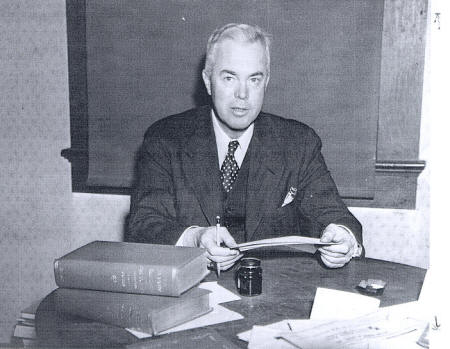

Queer Places:
Harvard University (Ivy League), 2 Kirkland St, Cambridge, MA 02138
Trinity College, 300 Summit St, Hartford, CT 06106
Kent School Cemetery
Kent, Litchfield County, Connecticut, USA
 Robert Silliman Hillyer (June 3, 1895 – December 24, 1961) was an American poet.
He was part of the
Literary Ambulance Drivers during WWI.
Robert Silliman Hillyer (June 3, 1895 – December 24, 1961) was an American poet.
He was part of the
Literary Ambulance Drivers during WWI.
Hillyer was born in East Orange, New Jersey. He attended Kent School in Kent, Connecticut, and graduated from Harvard in 1917, after which he went to France and volunteered with the S.S.U. 60 of the Norton-Harjes Ambulance Corps serving the Allied Forces in World War I. He had long links to Harvard University, including holding a position as a Professor of English.
Stewart Mitchell and his friend, the poet Robert Hillyer, struggled with their homosexuality in the early 1920s. In an exchange of letters, they discussed the ability of will to overcome desire. Hillyer believed it was a necessity but Mitchell thought that desire always won and that the "safety valves of those who are used to getting what they want are too fastidious, furtive, or feeble to satisfy themselves in their sexual lives." Finally resolving to move forward, Mitchell told Hillyer he won't restrain himself, but neither will he "be lurking around urinals and water closets."
From 1948 to 1951 Hillyer was a visiting professor at Kenyon College and from there went to serve on the faculty at the University of Delaware.[1] While teaching at Trinity College in Hartford, Connecticut in the late 1920s, Hillyer was made a member of the Epsilon chapter of the prestigious St. Anthony Hall Delta Psi literary fraternity in 1927. His work is in meter and often rhyme. He is known for his sonnets and for such poems as "Theme and Variations" (on his war experiences) and the light "Letter to Robert Frost". American composer Ned Rorem's most famous art song is a setting of Hillyer's "Early in the Morning". Hillyer is remembered as a kind of villain by Ezra Pound scholars, who associate him with his 1949 attacks on The Pisan Cantos in the Saturday Review of Literature which sparked the Bollingen Controversy. Hillyer was identified with the Harvard Aesthetes grouping. He was 66 when he died in Wilmington, Delaware.[1]
My published books: